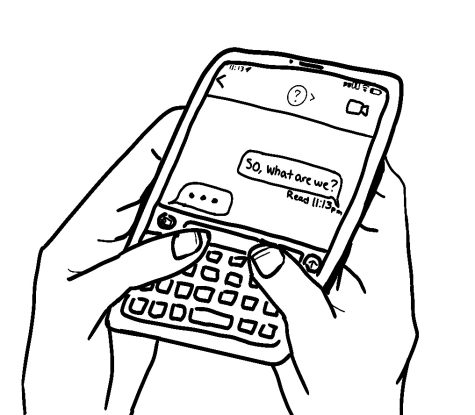Minus the City: Do Opposites Attract?
We have all obviously heard the cliche “opposites attract.” Although I first heard it in science classes designed to teach second graders which ends of the magnets stick together, as my understanding of the English language deepened and my age reached double digits, I realized it was a colloquial phrase that applied to relationships as well. Hollywood loves the idea that opposites attract; just look at almost any romantic comedy. “He’s an easy-going florist, she’s an uptight lawyer, who would’ve thought they would get married at the end?!” Me. I knew. It was so obvious. No one is surprised.
As much as movies give us unrealistic situations in which opposites attract (High School Musical – a prime example), it’s not like screenplay writers pulled the idea out of thin air. Romantic partnerships between two seemingly different people happen in real life all of the time. Differences do not make or break a relationship; I’ve never heard of a couple ending things because they could not agree on Red Vines or Twizzlers, Team Edward or Team Jacob. But what if you and your significant other are political opposites?
The partisan politics of today are enough of a struggle already, let alone if you and your partner aren’t on the same side. Agreeing just to not talk politics may work for some couples, but it is not the be-all, end-all solution for everyone. At the heart of political ideologies are individual philosophies of human nature, and it is the extreme differences in the perception of humanity that I believe create problems in a relationship. Our conceived notions of humans and what makes them tick determines what rights we think people have or don’t have, and differences in opinions on human rights can be irreconcilable. Take, for example, the debate on reproductive rights. Opinions within this argument reflect ideas on health care, gender and ethics. It’s a broad topic, and answers are never categorically black and white. Stances on these issues are not necessarily what determine compatibility; however, respect is.
A relationship, romantic or otherwise, that is not based on respect is unhealthy. If you aim for a long-term relationship, achieving the mutual respect necessary to go the distance may become a challenge if political views reveal two extremely opposite perspectives. Don’t misinterpret this to mean that people across the political spectrum cannot respect each other’s opinions, but the respect we hold for romantic partners is much more complex than the respect we hold for the general population.
The complex respect involved in romance requires much more maintenance than the average platonic relationship, and while contradictory ideologies don’t hinder that, they do add to the relationship work load. Always remember to evaluate the emotional costs and benefits of being in a relationship, and reconsider your participation if the returns on investment are consistently negative. The world needs all the love it can get, so proceed with an open heart and make sure yours is being utilized to its fullest potential.










